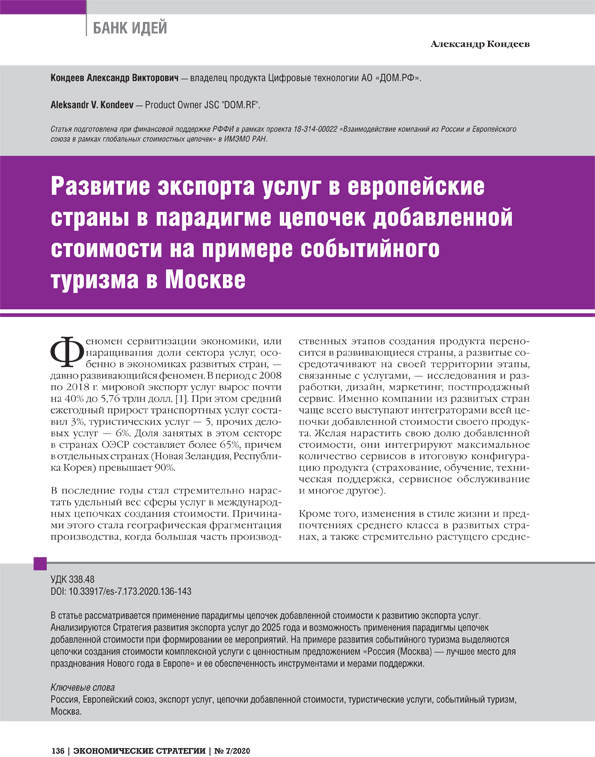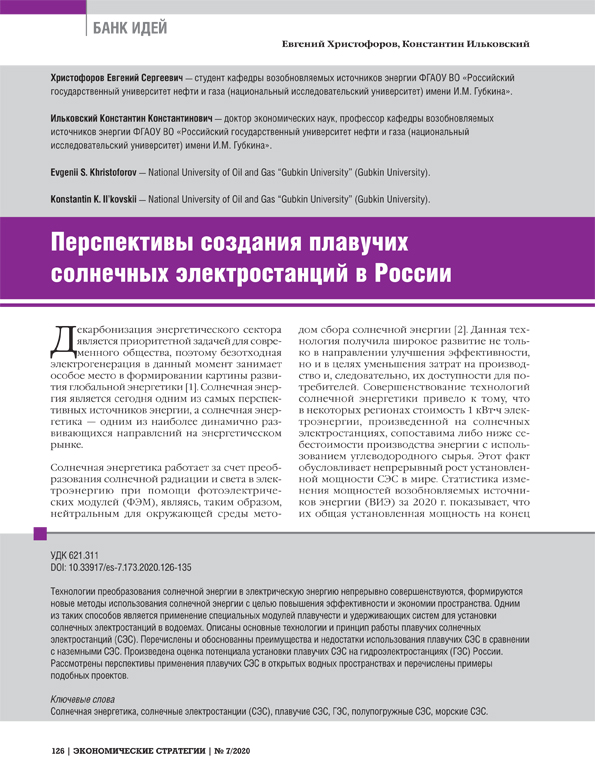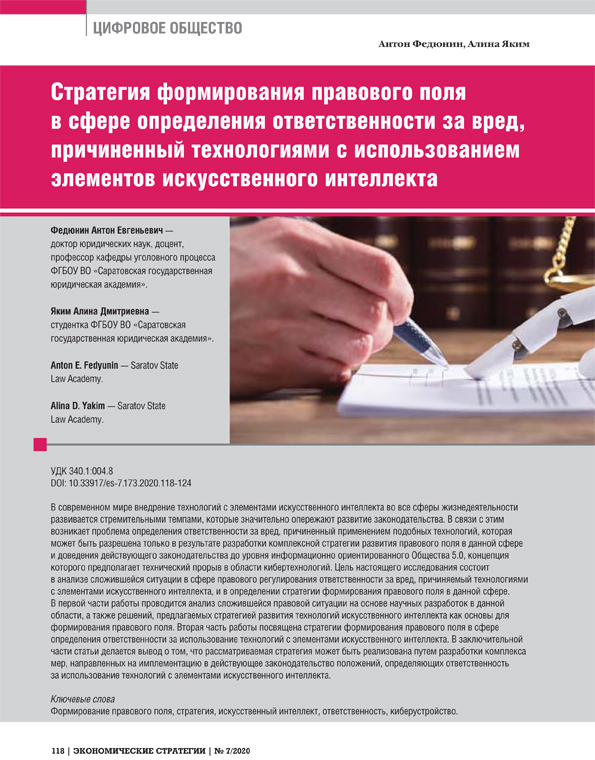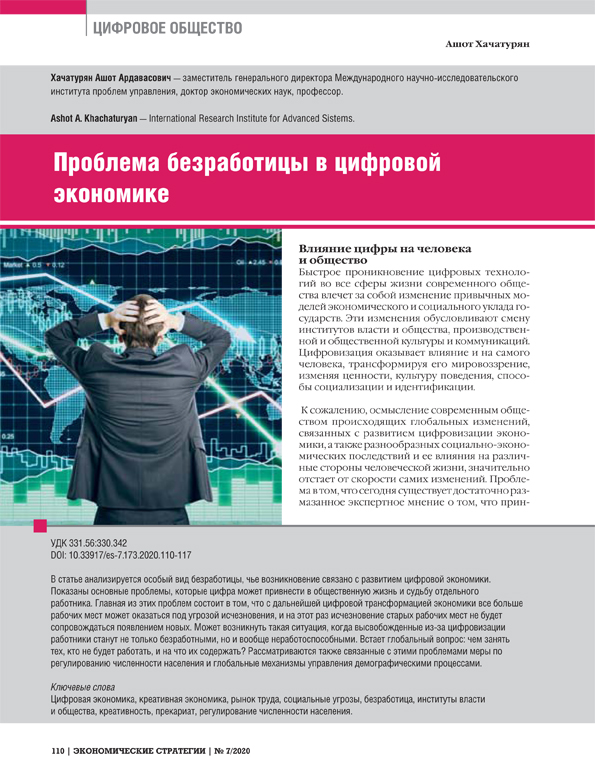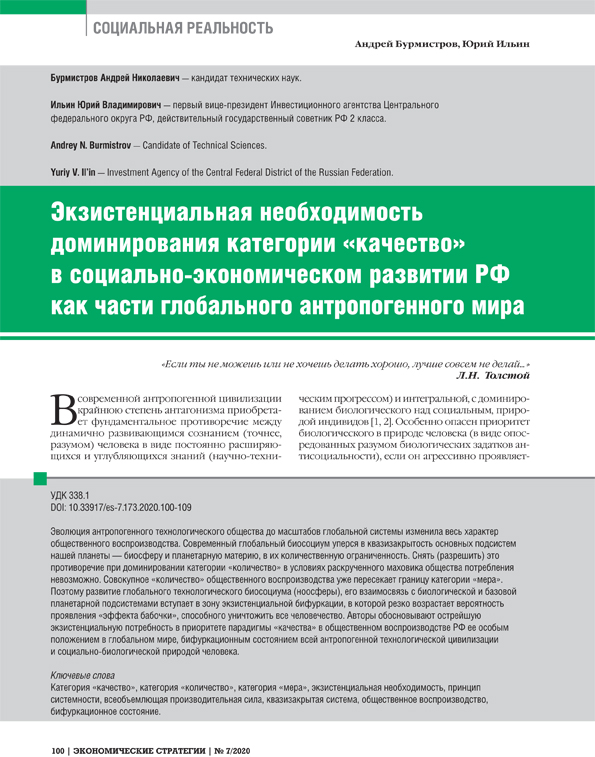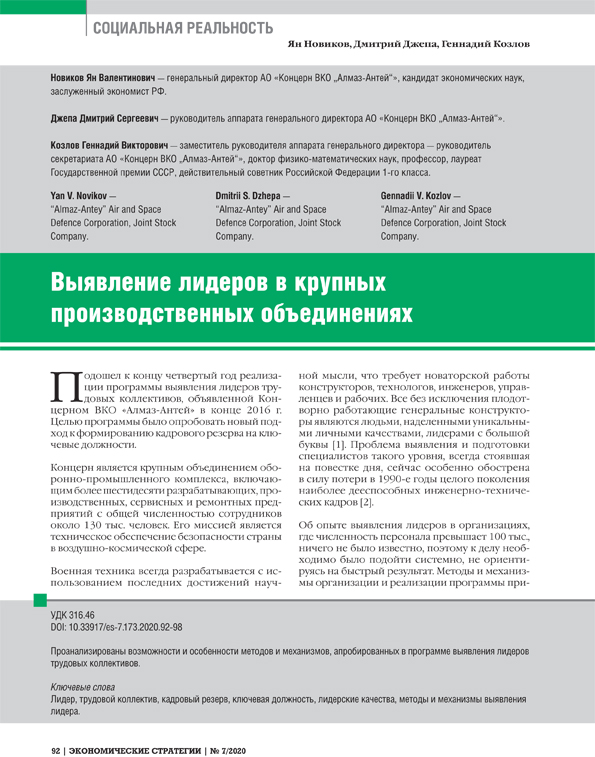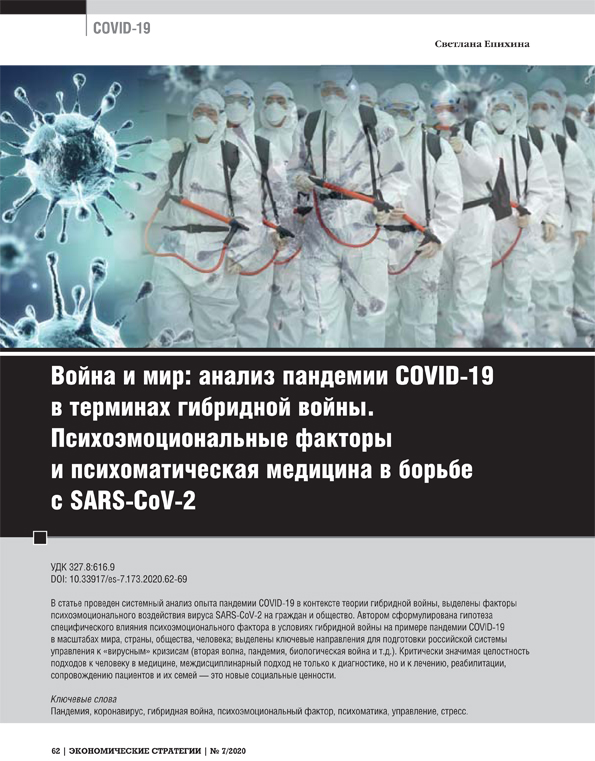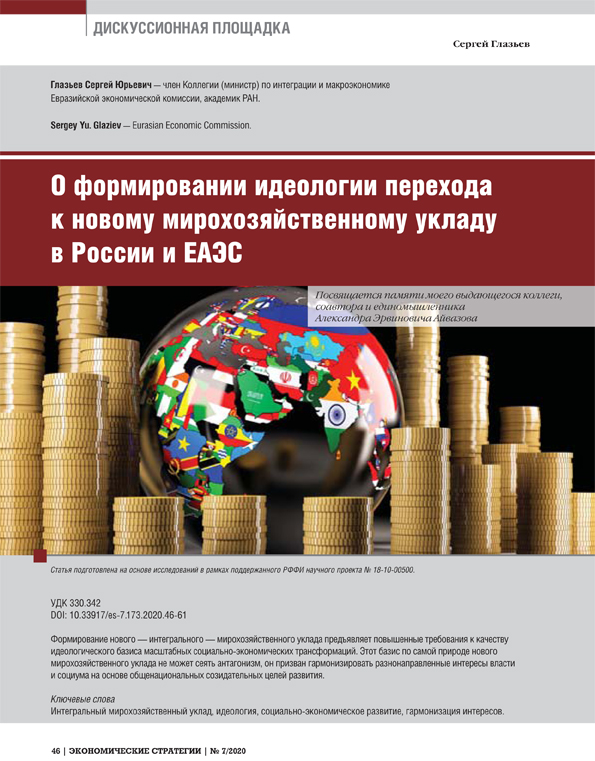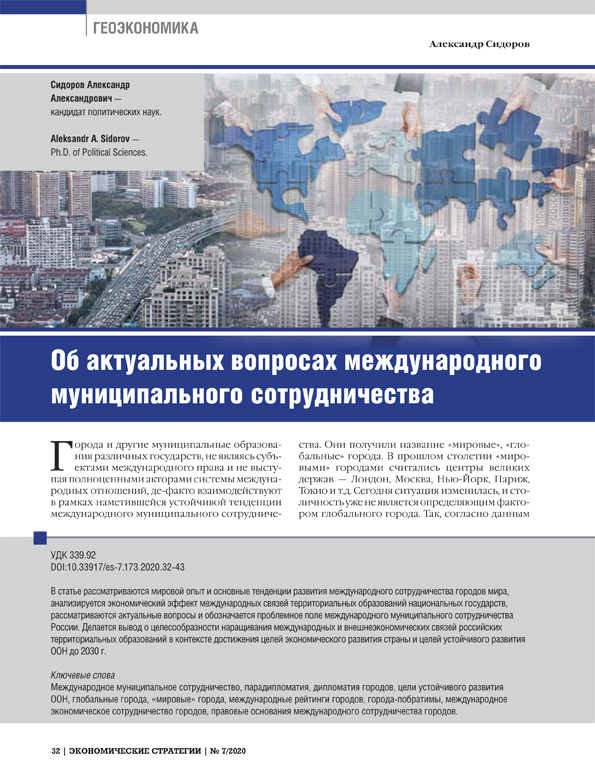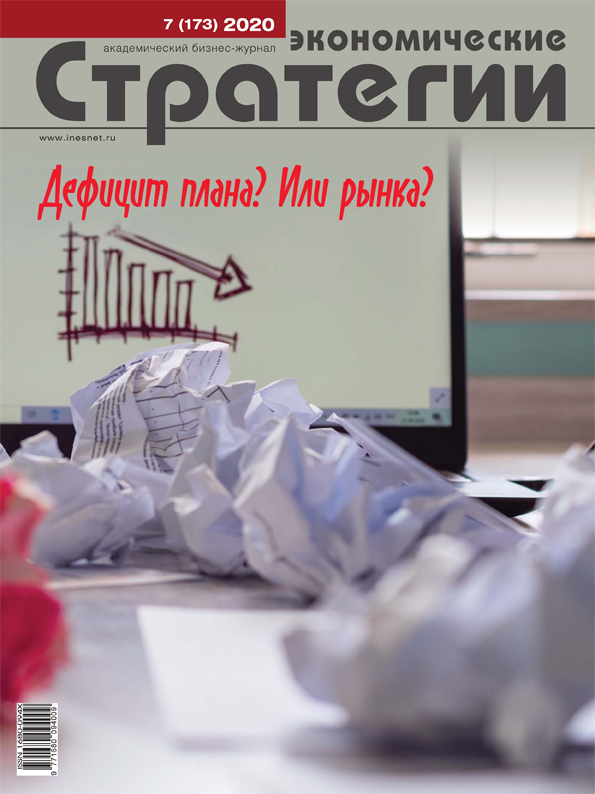
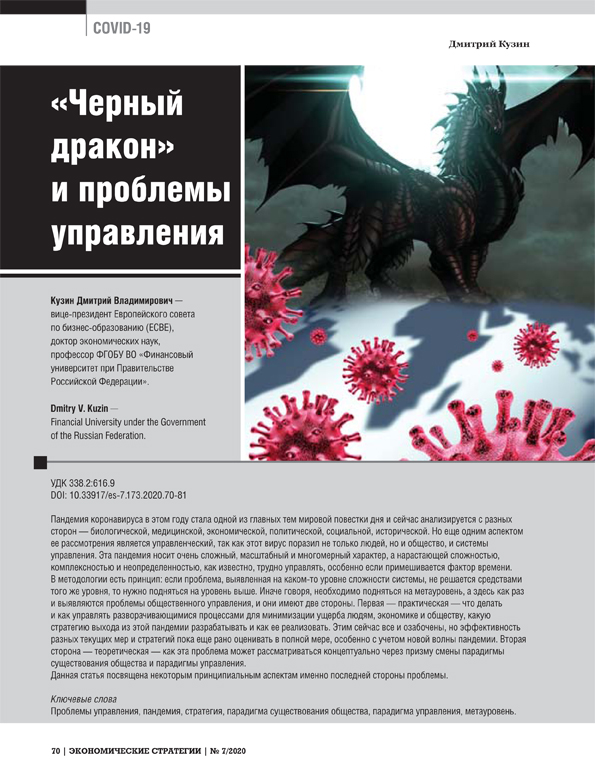
DOI: 10.33917/es-7.173.2020.70-81
The coronavirus pandemic this year has become one of the main topics on the world agenda and is now being analyzed from different angles — biological, medical, economic, political, social, historical. But another aspect to take into account is administrative, since this virus has infected not only individuals but also society, government and business systems. The pandemic is very complex, large-scale and multidimensional and, as is well known, it is hard to control the increasing difficulty and uncertainty, especially when the time factor is involved. There is a principle in methodology: if a problem identified at a certain level of the system’s complexity is not solved by means of the same level, then you need to rise to a higher level. In other words, it is necessary to rise to the metalevel, and this is where the problems of public administration and management are identified, and they are two-sided. The first one is practical — what to do and how to manage the unfolding processes to minimize damage to people, economy and society, what strategy to develop for recovery from this pandemic and how to implement it. This is a focus of everyone’s attention now, but it is too early to fully assess the effectiveness of various current measures and strategies, especially given the new wave of the pandemic. The second side — theoretical — how this problem can be viewed conceptually through the prism of changing the paradigm of the society existence and the paradigm of management. The present article deals with some fundamental aspects of the latter aspect of the problem.
Продолжить чтение



